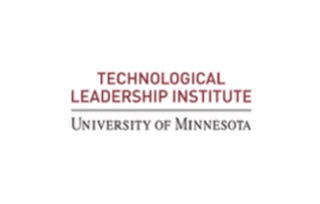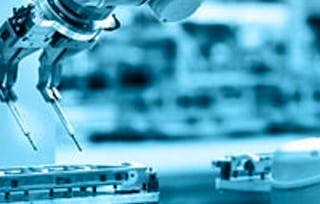Unlock the potential of Micro Electromechanical Systems (MEMS) with this comprehensive course, designed to equip you with the knowledge and hands-on skills to excel in this transformative field.
即将结束: 只需 199 美元(原价 399 美元)即可通过 Coursera Plus 学习新技能。立即节省

您将学到什么
Integrate foundational knowledge and material science to optimize MEMS device performance.
Master materials, fabrication techniques, and advanced sensor interfacing.
Design, interface, and characterize MEMS sensors for practical applications.
Develop expertise in sensor output encoding, PCB design, and industry-relevant applications.
您将获得的技能
- Embedded Software
- Biomedical Technology
- Electronic Hardware
- Materials science
- Electronics Engineering
- Mechanical Design
- Hardware Design
- Chemical and Biomedical Engineering
- Semiconductors
- Engineering Design Process
- Laboratory Testing
- Communication Systems
- Laboratory Equipment
- Analytical Testing
- Manufacturing Processes
- Electronics
要了解的详细信息

添加到您的领英档案
8 项作业
了解顶级公司的员工如何掌握热门技能

该课程共有8个模块
This module will give you a glimpse of what you will be learning in the course.
涵盖的内容
1个视频1篇阅读材料1个讨论话题
This module introduces students to the world of Micro Electromechanical Systems (MEMS), providing a broad overview of its technology and applications. Students will explore the key materials used in MEMS fabrication and gain practical knowledge of cleanroom protocols essential for the development of MEMS devices. This module lays the foundation for understanding the interplay between materials, mechanical structures, and electronic components that form MEMS systems.
涵盖的内容
5个视频1个作业1个讨论话题
This module focuses on the techniques used in MEMS fabrication, specifically oxidation processes and Physical Vapor Deposition (PVD) methods. Students will explore techniques like electron-beam (E-beam) evaporation and thermal evaporation, while also learning how thermal oxidation is used to develop layers for sensor fabrication. The module will also cover numerical calculations for oxidation processes and deposition techniques.
涵盖的内容
6个视频2篇阅读材料1个作业1个讨论话题
This module continues exploring MEMS sensor fabrication techniques with an emphasis on PVD sputtering and Chemical Vapor Deposition (CVD). Students will learn about the sputtering process used to deposit thin films and how CVD techniques are used to create high-quality sensor materials. By the end of this module, students will be able to differentiate between PVD and CVD processes and understand their specific applications in MEMS.
涵盖的内容
4个视频1篇阅读材料1个作业1个讨论话题
In this module, students will dive into the lithographic processes used in MEMS fabrication. Photolithography is a critical technique for patterning microstructures, and students will explore its different stages and techniques. This module also covers numerical calculations related to lithography and discusses how lithography is used in various MEMS applications.
涵盖的内容
6个视频1篇阅读材料1个作业1个讨论话题
This module covers micromachining techniques, including bulk and surface micromachining, that are integral to MEMS sensor fabrication. Students will learn about the development of MEMS-based VOC sensors, and explore advanced techniques like Deep Reactive Ion Etching (DRIE) and Reactive Ion Etching (RIE). The module also introduces wet etching processes and the concept of Miller indices in crystalline structures.
涵盖的内容
6个视频3篇阅读材料1个作业1个讨论话题
In this module, students will learn about sensor integration and interfacing techniques essential for MEMS applications. Topics will include 3D printing, PCB design, radar sensors, and sensor communication protocols. Students will also gain practical knowledge of interfacing MEMS sensors with electronic systems, exploring encoding methods and how sensor outputs are processed and transmitted.
涵盖的内容
8个视频1个作业1个讨论话题
This final module focuses on the characterization techniques used to assess MEMS sensor performance and explore their real-world applications. Students will learn about wire bonding techniques and various methods for characterizing MEMS devices. Practical applications of MEMS sensors in industries like healthcare, aerospace, and consumer electronics will also be discussed
涵盖的内容
6个视频1篇阅读材料2个作业1个讨论话题
位教师

从 Electrical Engineering 浏览更多内容
 状态:免费试用
状态:免费试用University of Minnesota
 状态:免费试用
状态:免费试用University of Minnesota
 状态:免费试用
状态:免费试用University of Minnesota
 状态:免费试用
状态:免费试用
人们为什么选择 Coursera 来帮助自己实现职业发展




学生评论
21 条评论
- 5 stars
90.47%
- 4 stars
9.52%
- 3 stars
0%
- 2 stars
0%
- 1 star
0%
显示 3/21 个
已于 Nov 13, 2024审阅
In-depth and well structured course on MEMS technology.
已于 Nov 13, 2024审阅
Loved the real-world applications, especially the diagnostics
已于 Nov 14, 2024审阅
3D printing and sensor interfacing were fantastic additions that set this course apart
常见问题
To access the course materials, assignments and to earn a Certificate, you will need to purchase the Certificate experience when you enroll in a course. You can try a Free Trial instead, or apply for Financial Aid. The course may offer 'Full Course, No Certificate' instead. This option lets you see all course materials, submit required assessments, and get a final grade. This also means that you will not be able to purchase a Certificate experience.
When you purchase a Certificate you get access to all course materials, including graded assignments. Upon completing the course, your electronic Certificate will be added to your Accomplishments page - from there, you can print your Certificate or add it to your LinkedIn profile.
Yes. In select learning programs, you can apply for financial aid or a scholarship if you can’t afford the enrollment fee. If fin aid or scholarship is available for your learning program selection, you’ll find a link to apply on the description page.
更多问题
提供助学金,






